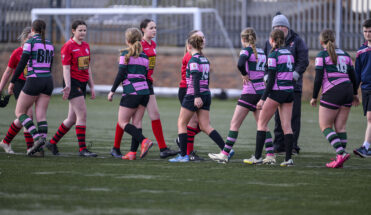Rainbow Cup to feature three law variations
The Guinness PRO14 Rainbow Cup will break new ground in the northern hemisphere, after three innovative law variations were approved for use by World Rugby.
The new competition will feature the captain’s challenge, goal-line drop-out and red card replacement rules already adopted across Super Rugby Aotearoa and Super Rugby AU, with the new rules to be implemented from next weekend’s opening round of fixtures in the Rainbow Cup.
The law trials were proposed by the PRO14’s Sports & Regulatory Committee, and are designed to encourage positive play and enhanced decision-making across the competition.
David Jordan, Tournament Director of PRO14 Rugby, said: “Our Sports & Regulatory Committee have been very proactive in identifying opportunities to introduce game innovations and we’re looking forward to implementing these trials during the Guinness PRO14 Rainbow Cup.
“We know these laws also have their origins from the Player Welfare Symposiums and our belief is that we will see a positive impact on the game overall.”
How each variation will work
Captain’s Challenge
Each team is allowed one captain’s challenge per match.
A captain may use his team’s challenge for incidents involving try-scoring or foul play up until the 75th minute of each match. After the 75th minute, the challenge rule will be applied more broadly to encompass any whistled decision.
Challenges can only be made up to 20 seconds after a decision has been made by the referee.
Only incidents from the previous passage of play can be reviewed.
Upon challenge, the referee will refer the decision to the TMO for official review.
The match referee retains the final decision.
If a team successfully challenges a decision, they retain their challenge and may use it again during the match.
If a team is unsuccessful, they lose their challenge.
Decisions that cannot be challenged include: a restart in play that has happened with a team choosing to play quickly; non-decisions where the referee does not blow their whistle and play continues, except in the instance where there has been foul play; and set-piece decisions, because they are technical decisions that could provide multiple outcomes based on the interpretations of players and referees.

Red card replacements
Any player that receives a red card will be removed from the pitch for a period of 20 minutes. After this period elapses, the player’s team can then replace said player with one of their replacements. The red-carded player will not be permitted to return to the pitch.
The 20-minute period will be measured in ‘game time’ as per sin-bin periods, meaning the clock will not run during stoppages in play.
Players who have been substituted for tactical reasons may be used to replace a player who has received a red card. The usual replacement laws continue to apply in that a replaced player may return for an injured front rower, injury due to foul play, HIA or blood.
The red card replacement law will also apply to a player who receives two yellow cards, triggering a red card.
Goal-line drop-outs
When the ball is held up over the try-line, knocked on in-goal or grounded by a defending player after a kick into the in-goal area, the defending team will now take a drop-out anywhere on their own goal-line.
The drop-out must be taken on or behind the defending team’s goal line and it must occur without delay. The ball must cut across the goal line and travel 5 metres. If this does not occur a sanction will apply and the non-kicking team may request the kick to be retaken or receive a 5m scrum in line with where the kick was taken.
A missed penalty or drop-goal will still result in a 22-metre drop-out.
Tags
Related news

Walker extends contract with Glasgow Warriors
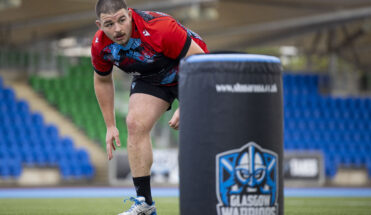
Pieretto departs Glasgow Warriors on loan

Steyn voted McCrea Financial Services Warrior of the Month for April

Ollie Smith becomes ambassador for Give Blood 4 Good
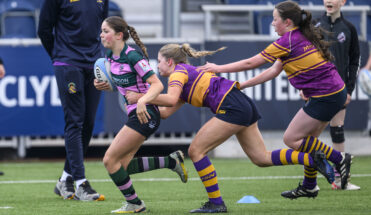
SP Energy Networks Championship Final | Match Review
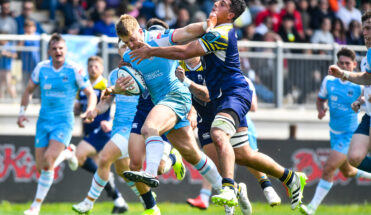
Glasgow Warriors to visit Zebre Parma for pre-season matchup
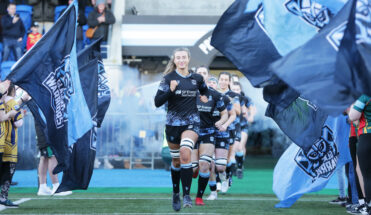
Glasgow Warriors to continue in expanded Celtic Challenge format
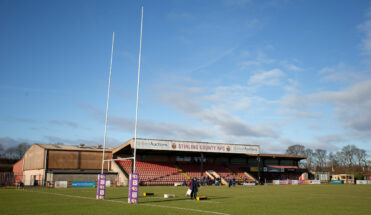
Glasgow Warriors A v Stirling Wolves | Update
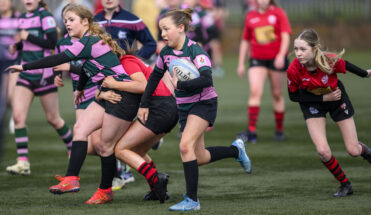
SP Energy Networks Championship Final | Preview
